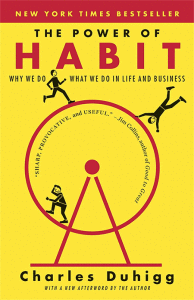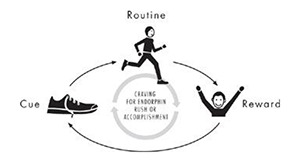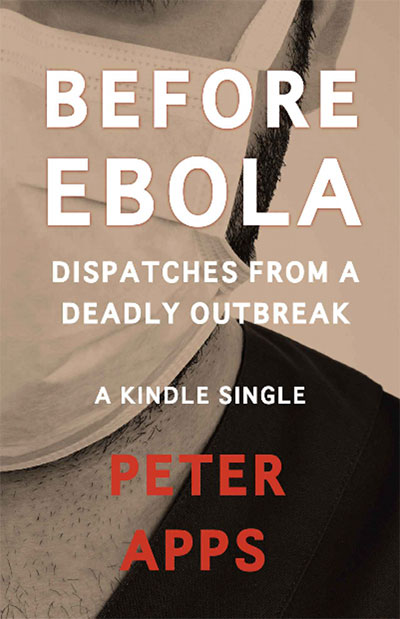Book Summary: The Power of Habit

The Power of Habit is about making and breaking habits to become more effective. It's a scientific explanation of the psychology behind behavior, written by Pulitzer Prize-winning author Charles Duhigg. I regularly use tools like Lift to build and maintain habits, but this is the first book which I've read on the topic. It does not disappoint.
Here's why you should read this book: it will very likely make you a better person.
Excellence & Habits
One of my favorite quotes is from Aristotle and it reads:
"We are what we repeatedly do. Excellence, then, is not an act, but a habit."
Over time I have grown to fully embrace this way of thinking. The amazing thing about habits which bring you closer to excellence is that momentum makes them easy to maintain once the habit it set.
This book explains why and how that happens, and it essentially boils down to choices. When you develop a habit, fewer things you do become choice.
For example, I have developed the habit of making my bed every day. I don't wake up and make a decision about whether or not I should complete this task, I just do it because it's become automatic. Once that habit is locked in, I acquire another one that I work on incorporating into my routine, like doing 25 push ups. Once you have that down, move onto another. Starting new habits is difficult, but maintaining current habits is easy. This is clearly just the tip of the iceberg that is The Power of Habit.
Cue, Routine, Reward
These three steps are the building blocks of all habits. If you want to adopt a new habit, you begin with finding or creating a cue.

Duhigg uses running in the morning as an example.
If you want to start running in the morning, your cue might be to put your running clothes next to your bed. The reward could be the endorphin rush or the sense of accomplishment you get from running. Perform this action and your brain will quickly begin expecting the reward. That's when the behavior becomes automatic. The cue itself triggers both the routine and the craving for the reward itself.
To the right is an image which shows what the cue, routine, reward loop looks like.
When Good Habits Cascade
Keystone habits are a particularly fascinating concept discussed at length in this book. A keystone habit is a habit which has a cascade effect into other areas of your life. Everyone has different keystone habits, but Charles Duhigg cites making your bed as one of these. In the book he says:
"Making your bed every morning is correlated with better productivity, a greater sense of well-being, and stronger skills at sticking with a budget. It’s not that a tidy bed causes better grades or less frivolous spending. But somehow those initial shifts start chain reactions that help other good habits take hold."
Once you identify these keystone habits, changing them can lead to change or create other habits. You may have noticed a similar effect when you cross an item off your task list: you suddenly have renewed enthusiasm to tackle what's next. Keystone habits work with a similar principle of momentum, which Duhigg calls small wins.
Favorite Passages
I highlighted 75 passages in this book. It is absolutely filled with useful information.
"All our life, so far as it has definite form, is but a mass of habits," William James wrote in 1892. Most of the choices we make each day may feel like the products of well-considered decision making, but they’re not. They’re habits. And though each habit means relatively little on its own, over time, the meals we order, what we say to our kids each night, whether we save or spend, how often we exercise, and the way we organize our thoughts and work routines have enormous impacts on our health, productivity, financial security, and happiness."
"Habits, scientists say, emerge because the brain is constantly looking for ways to save effort. Left to its own devices, the brain will try to make almost any routine into a habit, because habits allow our minds to ramp down more often. This effort-saving instinct is a huge advantage. An efficient brain requires less room, which makes for a smaller head, which makes childbirth easier and therefore causes fewer infant and mother deaths. An efficient brain also allows us to stop thinking constantly about basic behaviors, such as walking and choosing what to eat, so we can devote mental energy to inventing spears, irrigation systems, and, eventually, airplanes and video games."
"We can choose our habits, once we know how. Everything we know about habits, from neurologists studying amnesiacs and organizational experts remaking companies, is that any of them can be changed, if you understand how they function."
Conclusion
This is an outstanding book which expertly fuses storytelling, everyday life and science. It's not only fun and interesting to read about how people like Michael Phelps have changed their lives and the world through their habits. It can have a profound effect on your life. I deeply enjoyed this book and highly recommend it.
Rating:

Note: after publishing this, Charles Duhigg kindly tweeted at me. Follow him on Twitter @cduhigg




